One of the major sources of pollution in this world is due in large part to cars. Automobiles have been pushing out smog and exhaust for years, and the numbers are staggering.
Consider the populations of people around the world that drive, then multiply that thanks to commuter vehicles, buses, taxis, and much more.
You’ll find that the millions of cars and trucks send out pollutants into the air causing a great deal of problems for the ozone layer, air quality, and much more. It’s with that in mind that the EPA has pushed auto manufacturers to make more efficient cars.
This has been a part of a worldwide effort to reduce carbon footprints from individuals and corporations alike.
In Illinois, the EPA has been pushing to help reduce emissions from cars and trucks for some time. In recent years, they have passed laws that force car owners to get tested on a regular basis.
Without testing, registration cannot be had, and inspection will have to be done immediately.
There are some easy to follow rules in this regards, but there are other things that come into the frame when you look into Illinois emissions testing (by scanning your vehicle with a car scanner) on a closer level.
The Role of the EPA
EPA stands for the Environmental Protection Agency. They are an agency that focuses on complying with the clean air act, and has been working towards cleaning up air quality throughout the state since its inception.
As of 2005, laws were passed that require vehicles to reduce their air pollution that they put out through strict standards of testing. Since then, a great deal of changes have been put into place for vehicles that are on the road, with some consumers upset about the changes.
The goal of course is simple, to clean up the air quality in the state, specifically in the more populated urban areas such as Chicago.
Registering A Vehicle in Illinois
If you are going to purchase a car in the state of Illinois, you will no doubt need to register the vehicle with the DMV. Any car that has been made after 1996 must get a full emissions test done before they can get a license plate.
This is something that usually isn’t difficult to manage, and it has been working well for years. Any car before 1996, will also need to get tested, although at a more frequent pace than newer models.
In the state, cars that were made after 1996 only have to get their emissions tested every 4 years. The inspection element comes with the expiration of the license plate and registration.
The EPA oversees all of the inspection programs in the state of Illinois, which comes with a few notes that you may want to know about, including the problem of non-complying vehicles, waivers and much more.
Inspection Exemptions
There are some exemptions to the rules in Illinois. Some people are going to find that their vehicles are exempt from testing. This includes cars that were made before 1967.
This also includes cars that are made in 1995 or older if they were compliant with the laws that were passed in 2007 regarding inspections and emissions.
On the list of cars that don’t need to focus on this, and some that you may want to own include Diesel vehicles, electric vehicles, motorcycles, antiques, custom cars, street rods, farming options, parade cars, professional racing cars, government-owned war vehicles, and options that were registered previously in another state with current emission law testing pass.
You should familiarize with these options as you may have a car that fits within this option, and therefore will have an exemption in place.
Of course, if you don’t fit within this option, you will need to go with an inspection and you will not be able to skirt the option at all.
What If You Fail Inspection?
The question remains, what happens to those that fail? You may have a good, reliable car, but if it doesn’t pass the Illinois emissions testing (kit let’s you scan your vehicle for emission tested) you are going to have to deal with a few issues.
First and foremost, you will need to go to a registered testing area, and make sure that you are able to test properly.
If you fail, you’ll need to go with a repair technician that specializes in this type of work.
You’ll need paperwork from them as to whether or not you’ve paid for repairs. Then once you do that, you’ll have to get a retest.
If the retest shows a failure again, even after you’ve spent money on repairs, with proof, you will need to go to the next step.
Once your vehicle has failed, and you have paid money to repair it with proof that you spent upwards of $450, then you will need to get an Emission Inspection Waiver.
The waivers are going to help you get back on the road with a license plate and registration. However, you can only go with a Recognized Repair Technician that the DMV will tell you. You cannot just go anywhere, and you cannot just spend a few dollars on the repair.
Things have to be done in the exact way that the DMV requests, otherwise you will not get a waiver. If you fail after all of this, and you don’t get a waiver, your car will be on a rejection list.
If that happens, you will need to have paperwork so that you can discuss your options with the DMV.
Even though the laws in place are meant to help the environment overall, many people are frustrated with the emissions issues in the state of Illinois.
Mainly in Chicago, where news broke in recent years that the testing grounds were closing up and the city had no place to test for this issue. With that in mind, many consumers have to go far to get help with cleaning up their act.
Either way, this is a great way to ensure that the environment is getting a helping hand, and cars remain on the road longer and more efficiently.


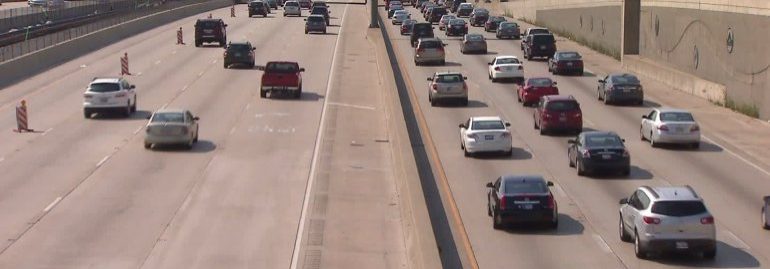
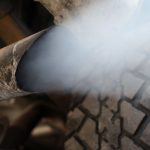
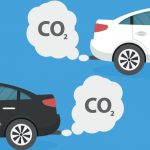
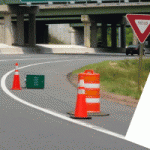
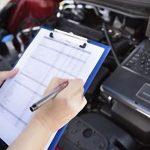
For those who don’t know what it is? Motor vehicle exhaust emissions are a significant source of pollution, including carbon monoxide, nitrogen oxides and hydrocarbons. These pollutants can be harmful to human health and the environment and lead to the formation of ground level ozone (smog). Exhaust emissions from cars and trucks are one of the single greatest sources of air pollution in the Chicago and Metro-East St. Louis areas.
Most 1996 and newer gasoline-powered passenger vehicles are subject to emissions inspections after they are four years old (e.g. 2012 vehicles are being inspected in 2016 for the first time). The inspection month coincides with the expiration date of the vehicle license plate. Typically, even model-year vehicles are inspected during even years, and odd model-year vehicles are inspected in odd years.
The Illinois EPA oversees its vehicle emissions inspection program that is operated by its contractor. The Illinois EPA enforces the vehicle emissions inspection requirement by partnering with the Illinois Secretary of State’s Office to deny vehicle license plate registrations to non-complying vehicles.